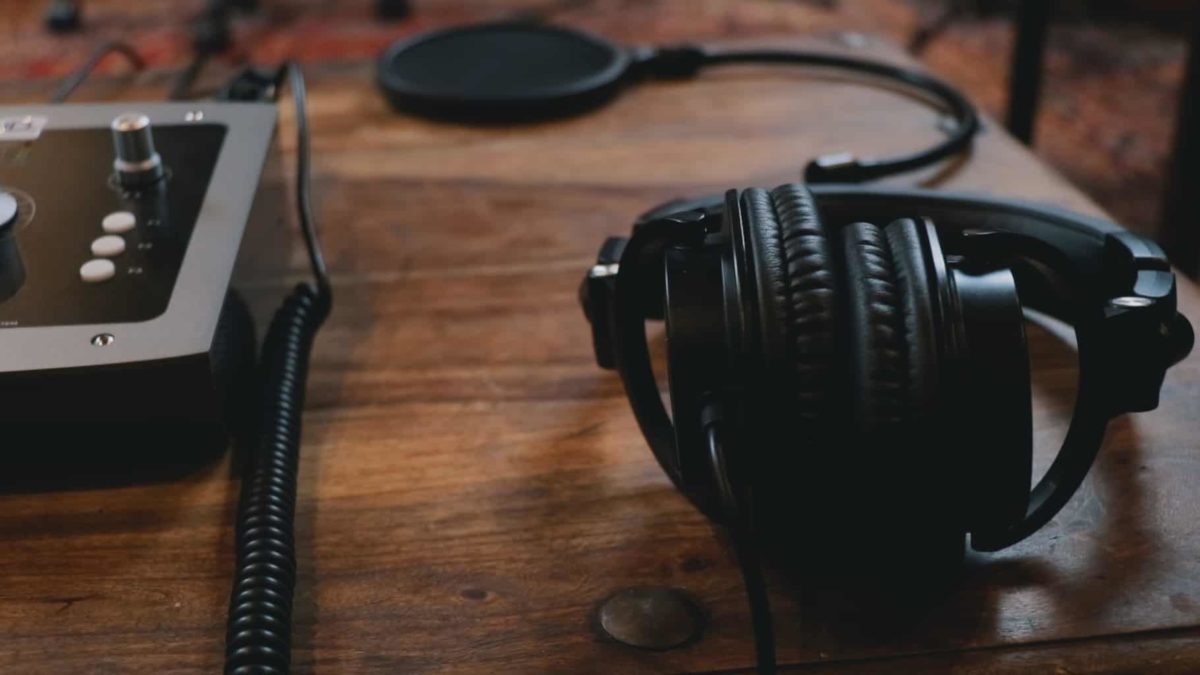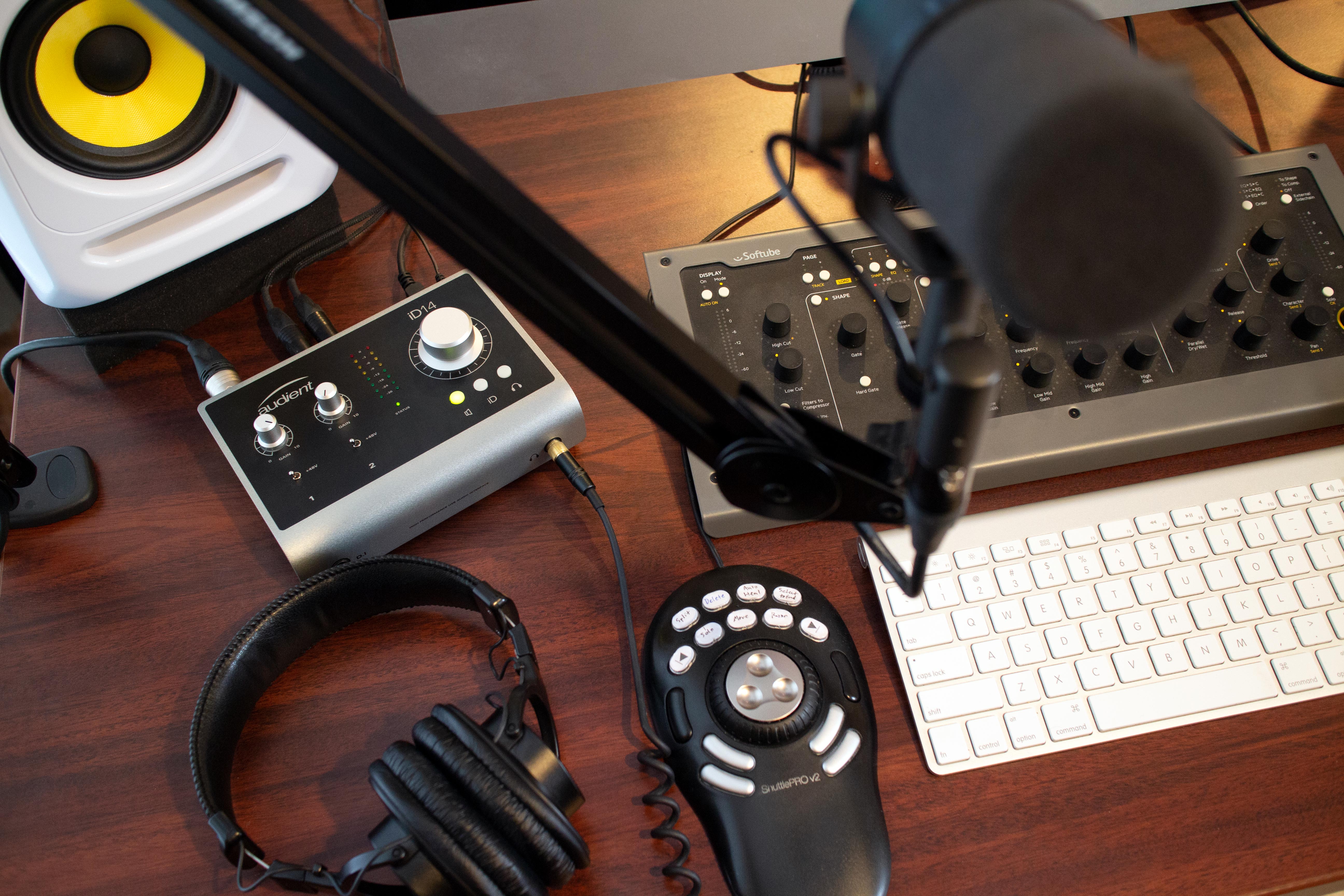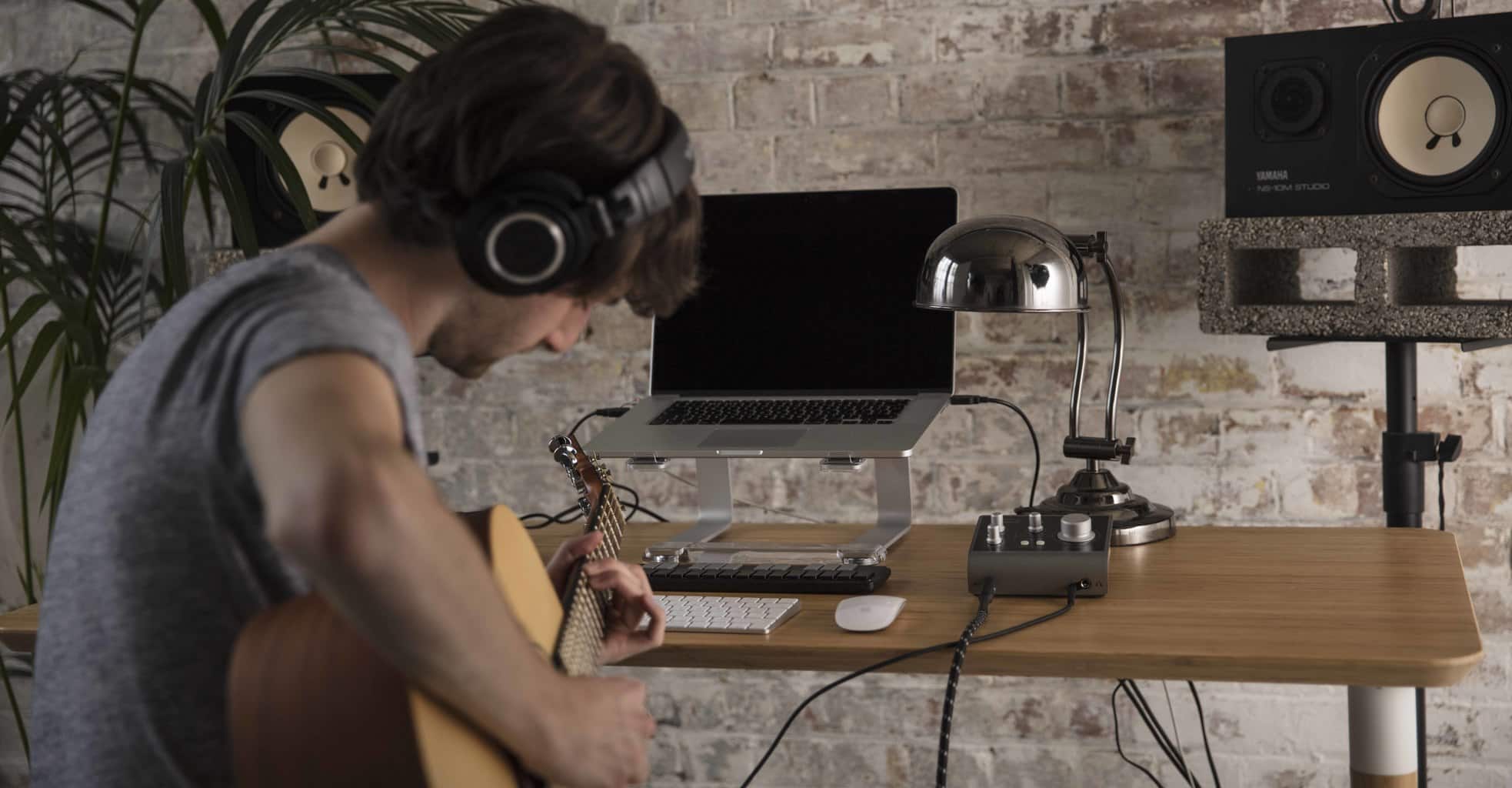Do you struggle to get your musical projects finished? Are you unsure what point you have to reach with a mix before you call it a day? Do technical issues or the distractions and noise of daily life constantly interrupt your workflow and make it difficult to achieve anything conclusive? Push your sonic works in progress over the line with our ten essential productivity tricks and tips…

Written by EVO
Keep your system tidy and efficient
The state of your creative environment can have a profound effect on your working efficiency and mindset, so keep your studio tidy and comfortable, and your music computer streamlined and free of potential hindrances. That includes plugins: if your plugins folder is overflowing with free and demo instruments and effects that you’re never really going to do anything with, cull them back to only those that you know you actually intend to use. The same goes for samples: keep them organised in whatever way works best for you – by genre, instrument, type, key, tempo, etc – so that you can find the sounds you need quickly and easily, and/or invest in a sample librarian application such as the endlessly helpful Sononym.

Master your DAW…
As well as being the most important single component of your music studio, your DAW is also by far the most complicated, and it’s imperative that you know it inside out if you hope to maintain a speedy workflow and minimise technical interruptions during the production process. Practice makes perfect, and your DAW-wrangling skills will naturally improve the more you use it, but if you haven’t yet, do read the freakin’ manual, as they say.
…And learn its key commands
Further to the last tip, if you’re relying entirely on your mouse to navigate and operate your DAW, you’re self-imposing a wholly unnecessary speed limit on the road to track completion. Every DAW offers a comprehensive library of customisable QWERTY keyboard shortcuts for accessing the vast majority of its functions and features, and you simply won’t believe the difference that using them will make to the pace of your workflow. Put learning those key commands at the very top of your priority list.
Be prepared
The last thing you want to be doing when inspiration strikes is configuring an empty DAW project, putting up a microphone or fiddling about with a chaotic patchbay – so make sure everything you need to start work on a new track is ‘permanently‘ set up and ready to go right out of the gate. Most DAWs ship with a variety of preset task- and genre-orientated project templates that can be easily adapted to your own requirements, so take advantage of them. You should be able to launch your DAW, hit record and immediately get down to musical business.
Be organised and focused
We’ve already mentioned keeping your studio and DAW organised, but even with that done, external distractions can all too easily derail the production flow. While we would consider fully disconnecting your music computer from the internet overkill, we certainly recommend turning off any social media alerts and other notifications when making music, and scheduling your sessions for those times in the day when nothing else (kids, chores, etc) is likely to sidetrack you.

Work fast
This one will depend on the kind of music you’re making to an extent, but the faster you move at the writing, arranging and mixing stages, the more organically and, perhaps, authentically the song will come to be realised. We’re not suggesting you rush your projects to the detriment of all aesthetic judgement, but rather that you don’t, say, ditch an entire recording because of one bum note, or decelerate the writing process by spending hours on a single synth sound when a preset will suffice temporarily. Keep the pace up at least until you have the bones of the track down – everything in the virtual studio is completely changeable after the fact, remember.
Keep it simple
With today’s software-based music studios granting us the ability to do almost literally anything we can imagine in the fields of recording, synthesis, sound design, audio editing, mixing and mastering, it can be tempting to throw the kitchen sink at every track, adding more and more elements just because you can. However, in music production, less is very often more, so be ruthless in your judgment of whether any given part is really bringing anything valid to the project or merely cluttering it up. And if, at the mixing stage, it becomes apparent that you’ve got too many parts in play, be ruthless about getting rid of all those that aren’t making a meaningful contribution. Some of the greatest pieces of music of all time were put together using only four or eight tracks, so think on that.

Trust your ears
Developing the ability to appraise a song or mix as objectively as humanly possible comes with experience, but it’s an essential part of any producer’s skill set. Don’t get hung up on the endless visual referencing provided by your DAW and plugins – metering and spectral analysis are incredibly powerful and useful tools, but ultimately, it’s what you hear that matters. There is no right or wrong in music, and if you like the sounds you’re making, then that’s mission accomplished. Sure, you’ll probably listen back to your earlier work years later and cringe at how rough it sounds compared to your most recent efforts, but that’s just the nature of artistic development.
Don’t be too much of a perfectionist
Continuing on that theme, if you’re labouring under the misapprehension that there’s such a thing as the ‘perfect’ track or mix, you can let that notion go right now. It’s obviously a falsehood, and you know it; but the real point is that the imperfections in a piece of music often play a major role in defining its character and energy. We don’t mean out-of-tune instruments, overtly sloppy timing or wildly overcooked effects, but if that weird little vocal inflection, mishit snare drum or moment of excessive distortion actually sounds cool, even though your left brain instincts are telling you to iron it out or re-record it, leave it in. A bit of dirt and human quirkiness can really lift a track, so embrace such serendipitous events when they comes along.

Know when to stop
When is a track actually finished? The answer, we’re both sorry and glad to say, is: never, really. There’s always something else you could do to improve a song or mix, but at some stage, you have to let it go and declare it ‘done’. Don’t worry, you’ll soon get a feel for when that time has come. A track might hit an obvious tipping point beyond which you just know any further tweaking will yield diminishing returns. Or you could simply tire of working on it, prompting you to hastily wrap it up – the expeditiousness of which can in fact be beneficial to the end result, as described in Work fast, above. And once you have called time on a choon, the best way to assess its merits (and failings) is to play it to as many people as possible and canvas their honest opinions – with the full understanding that no single listener’s perspective should be taken as definitive, of course.
Hopefully that’s given you plenty to think about when it comes to getting projects done and dusted. And as a final, bonus tip, the more you know about music production in general, the more productive you’ll be and, consequently, the more tracks you’ll finish, so be sure to digest the many articles and tips to be found on our Tutorial Hub (and elsewhere).
Related Articles
Do you struggle to get your musical projects finished? Are you unsure what point you have to reach with a mix before you call it a day? Do technical issues or the distractions and noise of daily life constantly interrupt your workflow and make it difficult to achieve anything conclusive? Push your sonic works in progress over the line with our ten essential productivity tricks and tips…

Written by EVO
Keep your system tidy and efficient
The state of your creative environment can have a profound effect on your working efficiency and mindset, so keep your studio tidy and comfortable, and your music computer streamlined and free of potential hindrances. That includes plugins: if your plugins folder is overflowing with free and demo instruments and effects that you’re never really going to do anything with, cull them back to only those that you know you actually intend to use. The same goes for samples: keep them organised in whatever way works best for you – by genre, instrument, type, key, tempo, etc – so that you can find the sounds you need quickly and easily, and/or invest in a sample librarian application such as the endlessly helpful Sononym.

Master your DAW…
As well as being the most important single component of your music studio, your DAW is also by far the most complicated, and it’s imperative that you know it inside out if you hope to maintain a speedy workflow and minimise technical interruptions during the production process. Practice makes perfect, and your DAW-wrangling skills will naturally improve the more you use it, but if you haven’t yet, do read the freakin’ manual, as they say.
…And learn its key commands
Further to the last tip, if you’re relying entirely on your mouse to navigate and operate your DAW, you’re self-imposing a wholly unnecessary speed limit on the road to track completion. Every DAW offers a comprehensive library of customisable QWERTY keyboard shortcuts for accessing the vast majority of its functions and features, and you simply won’t believe the difference that using them will make to the pace of your workflow. Put learning those key commands at the very top of your priority list.
Be prepared
The last thing you want to be doing when inspiration strikes is configuring an empty DAW project, putting up a microphone or fiddling about with a chaotic patchbay – so make sure everything you need to start work on a new track is ‘permanently‘ set up and ready to go right out of the gate. Most DAWs ship with a variety of preset task- and genre-orientated project templates that can be easily adapted to your own requirements, so take advantage of them. You should be able to launch your DAW, hit record and immediately get down to musical business.
Be organised and focused
We’ve already mentioned keeping your studio and DAW organised, but even with that done, external distractions can all too easily derail the production flow. While we would consider fully disconnecting your music computer from the internet overkill, we certainly recommend turning off any social media alerts and other notifications when making music, and scheduling your sessions for those times in the day when nothing else (kids, chores, etc) is likely to sidetrack you.

Work fast
This one will depend on the kind of music you’re making to an extent, but the faster you move at the writing, arranging and mixing stages, the more organically and, perhaps, authentically the song will come to be realised. We’re not suggesting you rush your projects to the detriment of all aesthetic judgement, but rather that you don’t, say, ditch an entire recording because of one bum note, or decelerate the writing process by spending hours on a single synth sound when a preset will suffice temporarily. Keep the pace up at least until you have the bones of the track down – everything in the virtual studio is completely changeable after the fact, remember.
Keep it simple
With today’s software-based music studios granting us the ability to do almost literally anything we can imagine in the fields of recording, synthesis, sound design, audio editing, mixing and mastering, it can be tempting to throw the kitchen sink at every track, adding more and more elements just because you can. However, in music production, less is very often more, so be ruthless in your judgment of whether any given part is really bringing anything valid to the project or merely cluttering it up. And if, at the mixing stage, it becomes apparent that you’ve got too many parts in play, be ruthless about getting rid of all those that aren’t making a meaningful contribution. Some of the greatest pieces of music of all time were put together using only four or eight tracks, so think on that.

Trust your ears
Developing the ability to appraise a song or mix as objectively as humanly possible comes with experience, but it’s an essential part of any producer’s skill set. Don’t get hung up on the endless visual referencing provided by your DAW and plugins – metering and spectral analysis are incredibly powerful and useful tools, but ultimately, it’s what you hear that matters. There is no right or wrong in music, and if you like the sounds you’re making, then that’s mission accomplished. Sure, you’ll probably listen back to your earlier work years later and cringe at how rough it sounds compared to your most recent efforts, but that’s just the nature of artistic development.
Don’t be too much of a perfectionist
Continuing on that theme, if you’re labouring under the misapprehension that there’s such a thing as the ‘perfect’ track or mix, you can let that notion go right now. It’s obviously a falsehood, and you know it; but the real point is that the imperfections in a piece of music often play a major role in defining its character and energy. We don’t mean out-of-tune instruments, overtly sloppy timing or wildly overcooked effects, but if that weird little vocal inflection, mishit snare drum or moment of excessive distortion actually sounds cool, even though your left brain instincts are telling you to iron it out or re-record it, leave it in. A bit of dirt and human quirkiness can really lift a track, so embrace such serendipitous events when they comes along.

Know when to stop
When is a track actually finished? The answer, we’re both sorry and glad to say, is: never, really. There’s always something else you could do to improve a song or mix, but at some stage, you have to let it go and declare it ‘done’. Don’t worry, you’ll soon get a feel for when that time has come. A track might hit an obvious tipping point beyond which you just know any further tweaking will yield diminishing returns. Or you could simply tire of working on it, prompting you to hastily wrap it up – the expeditiousness of which can in fact be beneficial to the end result, as described in Work fast, above. And once you have called time on a choon, the best way to assess its merits (and failings) is to play it to as many people as possible and canvas their honest opinions – with the full understanding that no single listener’s perspective should be taken as definitive, of course.
Hopefully that’s given you plenty to think about when it comes to getting projects done and dusted. And as a final, bonus tip, the more you know about music production in general, the more productive you’ll be and, consequently, the more tracks you’ll finish, so be sure to digest the many articles and tips to be found on our Tutorial Hub (and elsewhere).





